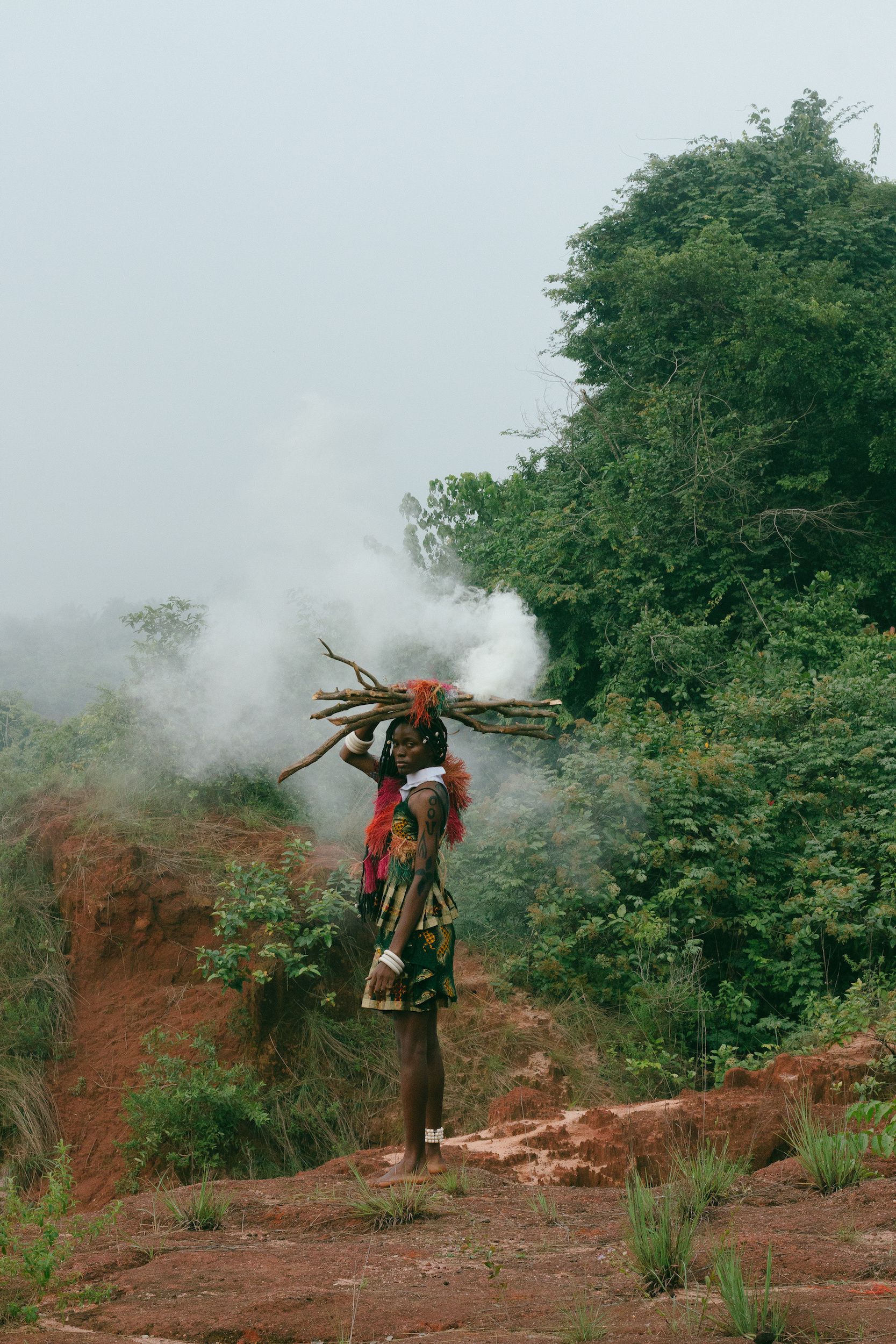Daniel Obasi & Yagazie Emezi Probe Igbo Culture's Past and Present Traditions In This New Multimedia Project
The Nigerian artists have created a short film and lookbook in collaboration with Vlisco&co.
At the top of 2018, Nigerian creative Daniel Obasi pushed the envelope with his fashion film collaboration with Vlisco&co, An Alien In Town.
The artist has teamed up again with the Vlisco venture, along with photographer Yagazie Emezi, for the latest edition highlighting Eastern Nigeria.
After touching base with its Nigerian creative network for a roundtable discussion, Vlisco&co presents a unified visual narrative exploring the old and new traditions of Igbo culture and its connection with Vlisco wax. This multimedia project was deeply researched and gave Obasi and Emezi the room to document beliefs, myths and ways of life found in Igbo culture that are still alive, despite the preconceived notion that they are fading away.
These projects feature Vlisco fabrics that are too familiar in Igbo (and Nigerian) households, and were reworked into contemporary designs by Nigerian designers Fruche by Frank Aghuno and Gozel Green.
Obasi's short film, Udara, is a spiritual experimental fantasy that pays homage to Igbo culture's complex diversity through its symbolism, music, traditional beliefs and the tension between Christianity and traditional religion that's ever-present in Igbo communities. The film is deliberately timeless, drawing inspiration from the past and present in hopes to expand the perspective of what is possible with Igbo culture.
The synopsis continues:
After the loss of a dear one, two girls take a trip back to their hometown in an attempt to connect with the past. Ada is constantly haunted by dreams of herself in a different lifetime, [while] Nne, her sister, tries to guide and console her. Agu and Eze both stand on opposing ends of the conversation of religion. Agu [is] a crusader for tradition but is somehow still a church goer and Eze is stuck between proving himself traditionally as an Igbo man or following his father's dreams to become a church priest. Ironically, Agu and Ada (both strangers) are caught up in the same mystical dream from a lifetime ago until they run into each other.
In Udara, Obasi also explores the concept of ilo uwa, or reincarnation—"the belief that someone can be re-born in another lifetime."
Watch the filmbelow.
Emezi's concept for capturing Gozel Green and Fruche's collections in the lookbook component of this project stems from the Igbo custom of same-sex marriages in pre-Christian Igboland and Uli drawing—a well-known traditional art form practiced by Igbo women that has gradually disappeared from the public eye.
"It was important for me to produce more than a lookbook—the works created are an amalgamation of Igbo culture, present and forgotten," she explains on Instagram.
She also adds that before Christianity was introduced in Igboland, women were permitted to choose a wife and go through traditional marriage rites as a result of the death of a husband where no child was produced. "To have children, they could freely choose a man and the child(ren) would bear the name of the woman-husband. In other cases, a single wealthy woman could choose a wife and sometimes, more than one," she continues. "In our story, the women still have just themselves, at easy in their home and confident in their identity."
Emezi was able to connect with makeup artist Oragudosi Sophia Obiamakato adorn the models in the lookbook with accurate Uli designs. Igbo women not only adorned their bodies with Uli using a semi-permanent dye from specific trees, but also the walls of their homes. "Uli designs can, at times, be abstract while other designs represent aspects of daily life from animals, nature and home accessories," Emezi explains. "With the entry of Western religion and forceful colonial powers, the practice was deemed as 'primitive.' Women were encouraged not to draw Uli designs on their bodies, but rather, on cloth. As result, this led to a sharp and steady decline of the art form."
Take a look at our favorite images from the lookbook below.
